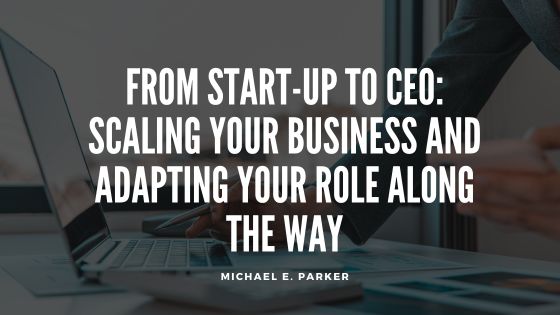The journey from a start-up entrepreneur to a CEO leading a thriving company is marked by growth, challenges, and the need for constant adaptation. Scaling a business requires a solid strategy and a shift in your role as a leader. Let’s explore how to navigate this transformation successfully.
Mindful Scaling: A Holistic Approach
Scaling a business goes beyond just increasing revenue; it involves a holistic approach encompassing people, processes, and systems. Tony Robbins emphasizes the importance of mindful scaling, which involves aligning your business’s growth with your vision, values, and long-term goals.
As a CEO, it’s crucial to lead intentionally and ensure that every aspect of your business’s expansion aligns with your original mission. This means considering how scaling will impact your company culture, customer relationships, and the value you provide to the market.
Adapting Your Role: CEO Responsibilities
As your business grows, your role as a CEO will naturally evolve. You might have been heavily involved in day-to-day operations in the early stages, but scaling requires a shift toward strategic leadership. Here are key responsibilities you’ll need to embrace:
Strategic Vision: Your primary focus should be setting the company’s long-term vision and direction. This involves analyzing market trends, identifying growth opportunities, and making strategic decisions to guide the company’s trajectory.
Team Leadership: With growth, your team will expand. Your role shifts to inspiring and empowering your team, ensuring they have the resources and support to execute your vision effectively.
Culture Stewardship: Maintain the company culture that has contributed to your success. Ensure your values are upheld and that new hires align with your culture.
Delegation: As you grow, you can’t handle every task. Delegate operational tasks to capable managers and empower them to make decisions.
Resource Allocation: Allocate resources strategically to maximize growth. This includes managing finances, investments, and capital allocation.
Innovation: Keep an eye on innovation within your industry and encourage your team to explore new ideas. Stagnation can hinder growth.
External Relations: Forge partnerships, nurture investor relationships, and represent your company externally. Your reputation as a CEO can significantly impact your business’s growth.
Balancing Growth and Sustainability
While scaling is exciting, it’s important to balance growth and sustainability. Rapid expansion can lead to burnout, strained resources, and quality control issues. Be mindful of the rate you scale and ensure that your infrastructure can support the growth without compromising quality.
Flexibility and Learning
Scaling a business is not a one-size-fits-all journey. What works for one company might not work for another. Be flexible and open to adjusting your strategies as you learn and gather insights from your experiences.
Transitioning from a start-up entrepreneur to a CEO leading a scaling business is a dynamic process. Embrace mindful scaling, adapt your role to focus on strategic leadership, and maintain a balance between growth and sustainability. Remember that your journey as a CEO is a continuous learning experience, and your ability to navigate challenges and seize opportunities will define the success of your business’s growth trajectory.

